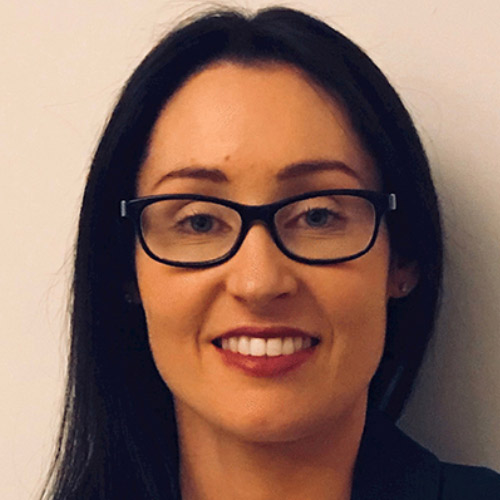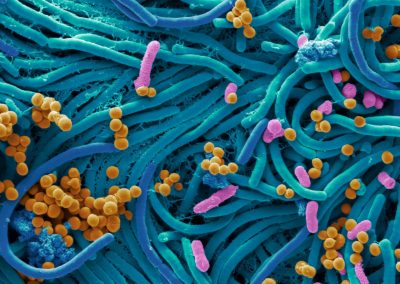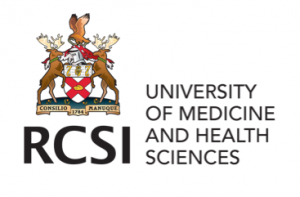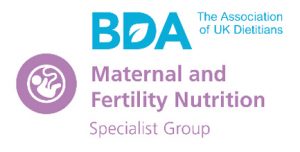£49.99
5 hours
Innovations in Women’s Health
Tuesday 5 March 2024, 10:00 – 16:00 GMT
5 hours
Innovations in Women’s Health
Tuesday 5 March 2024, 10:00 – 16:00 GMT
5 hours
£49.99
5 hours
OPEN TO ALL HEALTH PROFESSIONALS, TUTORS AND STUDENTS
Women* have different health journeys and experience unique challenges to their health. Although women live longer than men, on average, they spend a greater proportion of their lives in poor health. This full-day symposium will feature leading experts covering the latest research and recommendations, with a focus on advances, updates and innovations related to women’s health.
There is a significant lack of data on women’s health across the life course, and funding for research into specific conditions is scarce. The Royal College of Obstetricians and Gynaecologists (RCOG) published the ‘Better for Women’ report in December 2019. In recognition of this there have been several strategies and plans published in the UK (Women’s Health Strategy for England and The Scottish Women’s Health Plan) and Ireland (Women’s Health Action Plan) to address the disparities and set out priorities to improve the health and wellbeing of women.
This event aims to provide professionals, researchers and students working or interested in the area of women’s health with the very latest updates and innovations.
Presentations will cover:
- Updates on gestational weight gain research
- Technology for diabetes in pregnancy
- Food insecurity in the perinatal period
- Critical micronutrients in plant-based diets
- Digital Health technologies
- Updates in the management of polycystic ovary syndrome (PCOS)
- Latest treatments and resources for menopause
This masterclass costs just £49.99 for the full day. It has been designed for all professionals with an interest in women’s health – in particular, dietitians, nutritionists, health visitors, midwives, GPs, practice nurses, community pharmacists, tutors and students. A 50% student discount is available and we are now taking group bookings of up to 10 attendees. See frequently asked questions for more details.
*The terms woman/women will be used throughout this symposium, however the content may also apply to those assigned female at birth but holding a different gender identity (non-binary or transgender). It is important to ensure that the terms used in practice are personalised to individual patients.
LEARNING OBJECTIVES:
WATCH THIS SYMPOSIUM TO:
GAIN CLEAR UNDERSTANDING OF:
- The rationale for measuring weight during pregnancy
- An overview of Digital Health offerings for women’s health and the practicalities of new technology
- The relationship between food insecurity, maternal diet, weight and pregnancy health outcomes
- The potential challenges and nutritional considerations in ensuring women consuming plant-based diets meet their physiological micronutrient needs
- Treatment methods for menopause including HRT
BE AWARE OF:
- The latest evidence relating weight gain to pregnancy outcomes
- The national policies and resources available to support patients facing food insecurity in the perinatal period
- Factors affecting the bioavailability of micronutrients in plant-based foods/diets
- The benefits and challenges associated with Digital Health
- New treatments and alternatives to HRT for menopause
- The latest advice for the management of polycystic ovary syndrome
BE ABLE TO:
- Provide evidence-based advice on gestational weight gain to patients
- Explain why the perinatal period needs special consideration in food insecurity research
- Provide guidance to women consuming plant-based diets on how to ensure adequate intake and absorption of critical micronutrients
- Identify challenges and opportunities associated with the adoption and implementation of digital health technologies in research and in clinical settings
- Provide evidence-based advice on symptoms, treatments, tools and resources for menopause and polycystic ovary syndrome
*RECORDING TIMESTAMPS:
- 7 mins: Gestational Weight Gain: An Update – Professor Lucilla Poston CBE
- 55 mins: Digital health and technology for diabetes in pregnancy: the new frontier – Dr Sara White
- 1 hour 35 mins: Food insecurity and health around the perinatal period – Dr Zoë Bell
- 2 hours 8 mins: Critical micronutrients for women’s health in the context of plant-based diets – Dr Jeannine Baumgartner
- 3 hours 7 mins: Empowering Women through Technology: a focus on nutrition – Dr Claire Timon
- 3 hours 50 mins: Polycystic Ovary Syndrome (PCOS) and obesity – What’s new? – Dr Luke Boyle
- 4 hours 33 mins: Menopause: overview of treatments and resources – Dr Tammy Nisner
CHAIRS:
• Dr Angela Flynn Senior Lecturer, School of Population Health, RCSI, Ireland
• Dr Sara White Clinical Senior Lecturer and Maternal Diabetes Clinical Research Lead, Department of Women and Children’s Health, King’s College London and Honorary Consultant in Metabolic Medicine (Clinical Biochemistry), Guy’s and St Thomas’ NHS Foundation Trust

Chairs introduction
Dr Angela Flynn
Senior Lecturer, School of Population Health, RCSI, Ireland
Dr Angela Flynn’s biography
Angela is a Senior Lecturer in the School of Population Health at RCSI in Ireland. Her research seeks to fill important gaps in knowledge regarding the critical window preceding and during pregnancy, which has enormous implications for the health of mother, child and generations to come. Her research interests include health and wellbeing before, during and after pregnancy, targeted pharmacological/behavioural interventions, metabolic and nutritional biomarkers, and the development of new preconception care pathways.

Dr Sara White
Clinical Senior Lecturer and Maternal Diabetes Clinical Research Lead, Department of Women and Children’s Health, King’s College London and Honorary Consultant in Metabolic Medicine (Clinical Biochemistry), Guy’s and St Thomas’ NHS Foundation Trust
Dr Sara White’s biography
Sara is a Metabolic Physician with clinical expertise in diabetes in pregnancy. During her PhD she investigated early pregnancy gestational diabetes (GDM) prediction and metabolic profiles amongst obese women with GDM. Her research explores GDM pathophysiology and stratification of potential subtypes, plus ways to improve outcomes in at-risk women.

Gestational Weight Gain: An Update
Professor Lucilla Poston CBE
Professor of Maternal and Fetal Health, Department of Women and Children’s Health, School of Life Course and Population Sciences, King’s College London
Professor Lucilla Poston’s biography
Lucilla directs a team of scientists and health professionals at King’s College London. Her research team aims to improve the health of women and their children in the UK, and globally, by better understanding of the processes which lead to complications in pregnancy, particularly premature birth, obesity, gestational diabetes and pre-eclampsia. She has published over 400 peer-reviewed research articles. Professor Poston’s a Fellow ad eundem of the Royal College of Obstetricians and Gynaecologists (RCOG), a National Institute of Health Research (NIHR) Senior Investigator (emeritus) and a Fellow of the Academy of Medical Sciences, UK. She is a member of the UK Government’s Scientific Advisory Committee on Nutrition (SACN) and President of the International Society for the Developmental Origins of Health and Disease. Professor Poston has been honoured by a CBE (Commander of the British Empire) for services to Women’s Health.
Session outlines and learning objectives
There remains uncertainty in clinical practice about the rationale and evidence base for routinely weighing women in pregnancy. In this talk the rationale for measuring weight will be discussed and the evidence relating to weight gain to pregnancy outcomes reviewed. The variety of interventions designed to limit weight gain will also be considered.
Watch this session to:
GAIN CLEAR UNDERSTANDING OF:
- The components of gestational weight gain (GWG)
- Current recommendations for GWG
- The effect of dietary and lifestyle interventions on GWG
BE AWARE OF:
- The current controversies
- Current recommendations for GWG in the UK
- Potential alternatives to GWG
BE ABLE TO:
- Provide an evidence-based opinion on GWG
- Understand the consequence of low and excessive weight gain
- Give evidence-based advice to patients

Digital health and technology for diabetes in pregnancy: the new frontier
Dr Sara White
Clinical Senior Lecturer and Maternal Diabetes Clinical Research Lead, Department of Women and Children’s Health, King’s College London and
Honorary Consultant in Metabolic Medicine (Clinical Biochemistry), Guy’s and St Thomas’ NHS Foundation Trust
Dr Sara White’s biography
Sara is a Metabolic Physician with clinical expertise in diabetes in pregnancy. During her PhD she investigated early pregnancy gestational diabetes (GDM) prediction and metabolic profiles amongst obese women with GDM. Her research explores GDM pathophysiology and stratification of potential subtypes, plus ways to improve outcomes in at-risk women.
Session outlines and learning objectives
The use of apps and new technology for diabetes in pregnancy has increased at pace over the past 10 years. This talk will introduce the audience to the concepts and the practicalities of ‘new kit’ and how their use is impacting the daily lives of pregnant individuals with diabetes as well as the healthcare professionals caring for them.
Watch this session to:
GAIN CLEAR UNDERSTANDING OF:
- Current use of apps and technology in diabetes and pregnancy care
- Potential future clinical use in view of technological advances
BE AWARE OF:
- How such advances are impacting daily lives and clinical care
BE ABLE TO:
- Have simple understanding of field in order to signpost individuals should the need arise

Food insecurity and health around the perinatal period
Dr Zoë Bell
Research Associate, Department of Nutritional Sciences, Faculty of Life Sciences and Medicine, King’s College London
Dr Zoë Bell's biography
Zoë currently holds an ESRC postdoctoral fellowship in the Department of Nutritional Sciences at King’s College London. Her fellowship collaborates with Lambeth Council’s Health Determinants Research Centre to explore food insecurity both during and after pregnancy employing qualitative and co-development approaches. Other interests include obesity, diabetes and creative methods.
Session outlines and learning objectives
Food insecurity (FI) is a complex social issue affecting the most vulnerable in our population. Food insecurity amongst women is a particular concern as women have complex nutritional requirements due to their menstrual cycle, pregnancy, and breastfeeding. During pregnancy, the food women eat is important not only for their own health, but also for their babies in recognition that giving every child the best start in life is crucial to lifelong health. This talk will cover food insecurity and why the perinatal period needs special consideration, the relationship between food insecurity, maternal diet, weight and pregnancy health outcomes, and the policies addressing food insecurity in the perinatal period.
Watch this session to:
GAIN CLEAR UNDERSTANDING OF:
- The definition of food insecurity, its prevalence and the importance of considering the perinatal period
- The relationship between food insecurity, maternal diet, weight and pregnancy health outcomes
- The national policies addressing food insecurity in the perinatal period
BE AWARE OF:
- The varied definitions and measures of food insecurity
- The limitations of the evidence base and gaps for future research
- The national policies and resources available to support patients
BE ABLE TO:
- Explain why the perinatal period needs special consideration in food insecurity research
- Describe the gaps in the UK evidence base regarding food insecurity and health in the perinatal period
- Give examples of policies and resources addressing food insecurity

Critical micronutrients for women’s health in the context of plant-based diets
Dr Jeannine Baumgartner
Lecturer in Nutritional Sciences, Department of Nutritional Sciences, Faculty of Life Sciences and Medicine, King’s College London
Dr Jeannine Baumgartner’s biography
Jeannine is a Lecturer in the Department of Nutritional Sciences at King’s College London and an Extraordinary Associate Professor at the Centre of Excellence for Nutrition of the North-West University in South Africa. She holds an MSc in Food Science and Nutrition from ETH Zurich, Switzerland, where she also obtained a PhD in Human Nutrition.
Session outlines and learning objectives
Plant-based diets are rapidly gaining in popularity in the UK, especially among women of reproductive age, for personal and planetary health reasons. Besides the evident benefits, the transition from animal- to plant-based diets raises questions among nutritional scientists, health professionals and the public on whether such diets can meet the micronutrient needs of vulnerable population groups, such as women of reproductive age. This talk will provide an update on the critical micronutrients for
Watch this session to:
GAIN CLEAR UNDERSTANDING OF:
- The critical micronutrients for women’s health in the context of plant-based diets
- The potential challenges and nutritional considerations in ensuring women consuming plant-based diets meet their physiological micronutrient needs
BE AWARE OF:
- Limitations of the current evidence base on the micronutrient adequacy of plant-based diets
- Plant-based sources of critical micronutrients
- Factors affecting the bioavailability of micronutrients in plant-based foods/diets
BE ABLE TO:
- Provide guidance to women consuming plant-based diets on how to ensure adequate intake and absorption of critical micronutrients

Empowering Women through Technology: a focus on nutrition
Dr Claire Timon
Lecturer in Population Health, RCSI
Dr Claire Timon’s biography
Claire is a Nutritionist and Lecturer of Population Health in RCSI. Her research focuses on the application of Digital Health and Internet of Things (IoT) technology for the assessment of diet, health and for lifestyle behaviour change interventions in ageing, cancer and chronic disease populations through feasibility studies, cross-sectional research, and multimodal interventions.
Session outlines and learning objectives
In this session, we delve into the dynamic landscape of Digital Health with a focus on women’s health and nutrition. The session aims to equip participants with a comprehensive understanding of the role that technology plays in shaping the present and future of women’s well-being, considering the current research and evidence in this area. Focusing on nutrition, the talk will navigate through key innovations, challenges, and opportunities within the realm of Digital Health.
Watch this session to:
GAIN CLEAR UNDERSTANDING OF:
- An overview of Digital Health offerings for women’s health
- The evidence on the effectiveness of Digital Health for weight management and lifestyle behaviour change
BE AWARE OF:
- The benefits (improved access and health outcomes, reduced inefficiencies, reduced cost etc.) and challenges (legal, regulatory, complexity of healthcare systems, adoption, data security, interoperability etc.) associated with Digital Health
BE ABLE TO:
- Identify challenges and opportunities associated with the adoption and implementation of digital health technologies in research and in clinical setting

Polycystic Ovary Syndrome (PCOS) and obesity – What’s new?
Dr Luke Boyle
RCP Obesity Fellow/Specialist Registrar in Diabetes & Endocrinology, Guy’s and St Thomas’ NHS Foundation Trust
Dr Luke Boyle’s biography
Luke is an RCP Obesity Fellow at Guy’s and St Thomas’ NHS Foundation Trust, and a Specialist Registrar in Diabetes & Endocrinology in NW London. He undertook a Wellcome Trust-funded PhD in Cardiovascular Science at The University of Edinburgh, and his clinical interests include severe and complex obesity.
Session outlines and learning objectives
Watch this session to:
GAIN CLEAR UNDERSTANDING OF:
- Aetiology, clinical features and diagnosis of PCOS
- Management options and goals of treatment in PCOS
- The roles of diet, obesity pharmacotherapy and bariatric surgery in PCOS
BE AWARE OF:
-
Other conditions which can resemble PCOS
-
Stigma associated with PCOS and psychological outcomes
-
New weight loss interventions and emerging evidence for these in PCOS
BE ABLE TO:
-
Recognise symptoms, signs and complications of PCOS
-
Counsel people with PCOS on dietary and other lifestyle interventions
-
Recognise when onward referral to weight management services is appropriate

Menopause: overview of treatments and resources
Dr Tammy Nisner
Salaried GP and GP Trainer at the Watling Medical Centre, GPwSI in Gynaecology – Gynaecology Collaborative, Islington Federation
Dr Tammy Nisner’s biography
Tammy is a GP and GP trainer in North London. She has an interest in women’s health and works in a community gynaecology and menopause clinic in Islington one day a week. She is currently training to be an advanced menopause specialist at the Whittington Hospital.
Session outlines and learning objectives
Feel confident in counselling patients about their options in menopause, and empower your patients, so they have the knowledge to make decisions about their care. This talk will provide a brief outline of menopause symptoms, treatment options, new treatments and resources for practitioners and patients.
Watch this session to:
GAIN CLEAR UNDERSTANDING OF:
- Common symptoms in menopause
- Review of HRT treatments and preparations
- Risks and Benefits of HRT
BE AWARE OF:
- Alternatives to HRT
- New treatment options
- Online resources and risk assessment tools
BE ABLE TO:
- Recognise menopause symptoms
- Understand common medical treatments for menopause
- Have access to tools and resources to offer patients
FAQs
1. I am unable to attend the live symposium, can I still access the material?
Yes, if you have registered and paid for the symposium in advance of the event date but cannot attend you will receive a unique link and access code to view the recording of the full symposium via email after the event. Please do allow up to a week for the recordings to be processed and check your junk/spam folders before contacting us.
2. Can I register for the event after the event has taken place?
Yes. Access to the recording of the full symposium will be available to purchase after the event has taken place. After you have registered and paid your access fee, you will be sent a unique link and access code to view the recording of the full symposium via email. You will be able to register for the full session for £49.99. Please allow up to a week for registrations to be processed and check your junk/spam folders before contacting us.
3. I registered but haven’t received a confirmation email.
Please check your spam/junk folders. If you can’t find the email, contact hello@mynutriweb.com with your full name and payment receipt.
4. Why is this event not free, when others usually are?
The symposium is priced at £49.99 for the full event to enable us to cover some of the running costs and continue to provide you with the highest quality e-learning, whilst ensuring that it is still accessible. A portion of the registration fee will go to the Department of Women and Children’s Health at King’s College London.
Included in the registration fee you will gain access to 5 hours of CPD with leading experts in women’s health and nutrition. After the live event, you will also receive speaker presentations, on-demand access to the full symposium to refer back to for at least 12 months, and your personalised CPD certificate for your records. A student discount is available (see separate question).
5. I'm a student, can I get a discount?
Yes, we are offering a student discount of 50% (£25). To receive your discount code, before registering please email hello@mynutriweb.com with your full name and a photo of your student ID.
6. Do I have to attend all the symposium sessions?
Registration to the symposium gives you access to the live event and recording after the event. You can use the same access link to join the live event at intervals throughout the day and will still have access to the full event recording and any sessions you missed live after the event. Your CPD certificate from the live event will reflect the total time you joined for.
7. Do I get a CPD certificate?
Yes, personalised CPD certificates will be emailed to attendees within seven days of watching. Each certificate is personalised to include the total length of time you attended the symposium. Please note, if you attend the event for less than 30 minutes you won’t qualify for a CPD certificate.
8. What if I need to cancel?
If you can no longer attend the session, you will be able to access the recording of the session on-demand for up to 12 months after the live event. However, if you wish to cancel your registration entirely, please contact us in writing by emailing hello@mynutriweb.com by midnight GMT 30 February 2024 for a partial refund of £45.99 (full price of the symposium excluding £4 processing costs). Cancellations received after the stated deadline will not be eligible for a refund. All refund requests must be made by the attendee or credit card holder. Refund requests must include the name of the attendee and the email address used to register. Refunds will be credited back to the original credit card used for payment, please allow 10 working days.
9. My company/university is paying for my attendance, can they pay via purchase order/invoice?
MyNutriWeb doesn’t have the facilities to accept purchase orders or issue invoices at this time. A payment link can be sent to your purchasing department for payment directly on your behalf, alternatively, we can issue a receipt of payment to you to claim your payment back.
10. Do you accept group bookings?
Group bookings of up to 10 attendees are accepted. Please email hello@mynutriweb.com to request a group booking form. Once the booking form has been returned, we will issue a payment link for the full cost of the booking. Please allow 10 working days for the booking to be processed after payment has been received. If you wish to watch the event live, please submit group booking requests by 30 February 2024. Requests made after this date may not be completed before the live symposium on 6 March 2024.
11. Can I watch the webinar on the same link as my colleague(s)?
Registration links are unique to each attendee, so watching on a colleague’s link means you won’t be registered as attending the event, which will result in you not receiving the slides and certificate of attendance. A group booking will enable you to watch together and still receive your slides and certificate.
CPD CERTIFICATE & LEARNING MATERIALS
This symposium is approved for CPD by the AfN

You are welcome to attend individual sessions. CPD certificates will be issued based on length of total time attended.
This symposium will provide attendees with an update on the latest evidence in respect to a number of activities that can apply across a females lifecycle, which provides a valuable CPD opportunity for those looking to update or extend their knowledge and understanding in this area. The inclusion of food insecurity and digital health within the programme is beneficial as they are incredibly topical areas where CPD in valuable due to the frequent developments in respect to the research and current environment.
Webinar slides and links to other key resources will be sent within a week of viewing the live webinar, along with a separate personalised CPD certificate to save for your files. Add hello@mynutriweb.com to your safe senders to ensure you receive them.
This webinar is being run in association with the Department of Women and Children’s Health at King’s College London, RCSI University of Medicine and Health Sciences and the BDA Maternal and Fertility Specialist Group

The research of the Department of Women and Children’s Health at King’s College London, centres around the concept of the life course of health. The health of the next generation begins at the earliest stages, the research spans preconception, maternity, infancy and adolescence.
The School of Population Health in RCSI University of Medicine and Health Sciences seeks to better understand and address the complex and ever-changing barriers to better health, in Ireland and globally. The School integrates multiple scientific disciplines, including public health and epidemiology, data science, health psychology, and healthcare outcomes. It drives multi-disciplinary initiatives in research, educational programmes and works with a diverse range of national and global partners to positively impact population health.
The Maternal and Fertility Nutrition Group are a specialist group of the British Dietetic Association. The ambitious and passionate group are dedicated to research, education and improving the standards and quality of care to patients accessing such services nationwide.
Please note, approval of each sponsor and activity is carefully assessed for suitability on a case by case basis. Sponsorship does not imply any endorsement of the brand by MyNutriWeb, its organisers, its moderators or any participating healthcare professional, or their association. Sponsorship funds are reinvested into the creation and promotion of professional development opportunities on MyNutriWeb.
Popular Now

Why Calories Don’t Count

South Asian Eatwell Guide

Dr Emily Leeming: Gut-Brain Axis: Food, mood and your gut microbiome
Feature in a Webinar
Webinar guest experts encompass topics relevant to all professionals and change agents in food and health, across all health and business sectors.
Would you like to feature in a webinar, or propose a guest expert?
Sponsor a webinar
MyNutriWeb offers organisations and brands an opportunity to sponsor topics, gaining valuable insights into the viewpoints of professionals within a moderated environment. If there is a topic that you would like to support please get in touch to discuss.
This website is intended only for students or professionals working in food, nutrition and health. If this is you, please click to continue.


